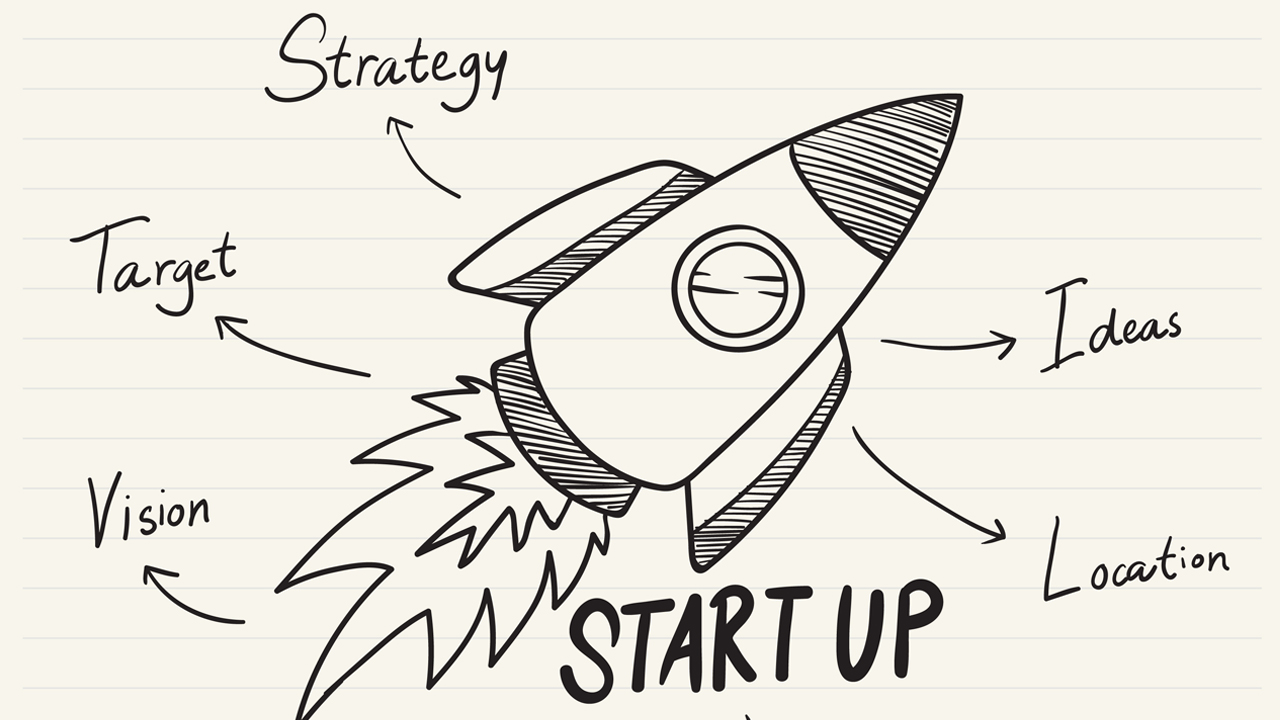
Starting a business is an exciting journey filled with opportunities and challenges. Many entrepreneurs are driven by a desire to quickly launch their product or service and see immediate growth. However, in the rush to get things moving, it’s easy to overlook one of the most crucial aspects of building a successful startup: strategic planning. Taking the time to carefully plan your strategy and growth will increase your chances of long-term success. Here’s a step-by-step guide on why and how startups should prioritize strategy planning and sustainable growth.
- Taking Your Time to Plan Your Strategy and Growth: Essential Tips for Startups
- Why Strategy Planning Matters for Startups
- 1. Clarify Your Vision and Mission
- 2. Understand Your Market and Customers
- 3. Set Realistic Goals and Milestones
- 4. Build a Flexible, Scalable Growth Plan
- 5. Financial Planning: Manage Cash Flow Wisely
- 6. Embrace Agility and Adaptability
- 7. Prioritize Customer Relationships
- 8. Build a Strong Team and Company Culture
- 9. Be Patient and Stay Committed to Your Strategy
- Action Steps to Get Started
- Conclusion
Taking Your Time to Plan Your Strategy and Growth: Essential Tips for Startups
Why Strategy Planning Matters for Startups
Strategy Planning is very important for Startups because rushing into growth without a strategic foundation may lead to:
- Poor product-market fit: Premature scaling before refining your product or service can result in wasted resources.
- Operational inefficiencies: Expanding without streamlined processes will cause bottlenecks and quality control issues.
- Financial strain: Scaling too quickly without stable cash flow or profitability can lead to cash burn and, ultimately, business failure.
- Accumulating technical debt due to rushed development.
Many startups fail, not because they moved too slowly, but because they scaled prematurely. Taking the time to plan means building a robust foundation for the long haul. Some Essential Tips for Startups includes;
1. Clarify Your Vision and Mission
Your startup’s vision and mission serve as the foundation for everything you do. Without clear goals, it’s easy to drift off course. Before you even consider launching your product or service, take time to define:
- Vision: Where do you see your business in 5-10 years? What impact do you want to have on the industry or society?
- Mission: How will your business achieve its vision? What specific product or service are you offering, and what problem are you solving?
A well-defined vision and mission guide your decision-making process and keep you focused on long-term objectives. They help align your team, attract customers who share your values, and differentiate your startup from competitors.
2. Understand Your Market and Customers
One of the biggest mistakes startups make is failing to thoroughly understand their target market and customers. Before you start building or scaling, take time to conduct market research to answer key questions:
- Who are your customers?
- What are their pain points, needs, and desires?
- Who are your competitors, and how are they addressing these needs?
You can gather this data through surveys, interviews, focus groups, or by studying competitor reviews. The more you understand your audience, the better you’ll be able to position your product in a way that resonates with them. It also helps you identify your unique selling proposition (USP), which will differentiate your business from competitors and position you as a market leader.
3. Set Realistic Goals and Milestones
Startups should aim high, but growth should be realistic and measurable. Setting SMART goals—specific, measurable, achievable, relevant, and time-bound—is critical for tracking progress. This will keep your growth strategy focused and manageable.
Here’s a framework for setting strategic goals:
- Short-term goals: What do you want to achieve in the next 3-6 months? These could be early-stage milestones like refining your MVP (Minimum Viable Product), securing initial customers, or achieving product-market fit.
- Mid-term goals: What do you plan to achieve in the next 1-2 years? Examples could include securing additional funding, expanding your customer base, or scaling operations.
- Long-term goals: These goals should align with your vision and address where you want your business to be in 5-10 years. They could involve diversification, international expansion, or becoming a market leader.
By breaking your growth into phases, you can pace yourself and avoid the common trap of growing too fast, too soon.
4. Build a Flexible, Scalable Growth Plan
One of the common pitfalls for startups is growing too fast without having the right infrastructure in place. It’s tempting to jump into expansion when you see early signs of success, but unplanned growth can lead to burnout, poor customer experiences, and financial instability.
Here’s how to build a growth strategy that is both scalable and sustainable:
- Test Your Product: Ensure that your product or service has market demand before scaling. Consider launching in a small, controlled market or using a minimum viable product (MVP) to test your concept.
- Optimize Operations: Before scaling, streamline your operations to ensure efficiency. Automate processes where possible and develop systems for customer support, inventory management, and other operational aspects.
- Hire Slowly and Strategically: Don’t rush to hire as soon as you see growth. Start with a lean team and carefully add new roles as needed, ensuring each hire contributes directly to your startup’s goals.
By taking a steady approach to growth, you reduce the risk of overextension and ensure that you can deliver a consistent, high-quality product or service as your customer base expands.
5. Financial Planning: Manage Cash Flow Wisely
One of the leading causes of startup failure is poor cash flow management. Startups often burn through capital quickly in an attempt to scale rapidly, only to find themselves without enough runway to continue operations. Here are some financial tips for startups:
- Budget conservatively: Start with a conservative budget, focusing on necessary expenses such as product development, marketing, and customer acquisition. Cut unnecessary costs to preserve cash flow.
- Track your expenses: Use accounting software or hire a financial expert to track every dollar coming in and going out. Understanding your burn rate (the amount of money you’re spending monthly) will help you know when to raise additional funds or reduce costs.
- Secure funding strategically: Whether through bootstrapping, venture capital, or loans, raising funds should align with your growth plan. Don’t seek funding too early or too late—both can put your startup in a precarious position.
A solid financial strategy ensures that your startup remains solvent and has the resources to weather the inevitable ups and downs of entrepreneurship.
6. Embrace Agility and Adaptability
No matter how carefully you plan, the business environment is unpredictable. Market trends shift, customer preferences evolve, and new competitors emerge. This is why adaptability is one of the most important traits for startups. Successful startups continuously test and adapt their strategies based on feedback and results.
Here’s how you can embrace agility:
- Set measurable goals: Use key performance indicators (KPIs) to measure your progress. Regularly review these metrics and adjust your strategy accordingly.
- Listen to your customers: Customer feedback is a goldmine of information. Be open to pivoting your product, service, or approach based on customer insights.
- Stay updated on industry trends: Keeping up with market trends, technological advancements, and competitors will allow you to respond quickly to new opportunities or challenges.
Remember, a startup’s ability to evolve is often what separates the successes from the failures.
7. Prioritize Customer Relationships
Building strong relationships with your customers is essential for the long-term growth of your startup. In the early stages, it’s important to deliver not just a great product but also an exceptional customer experience. Happy customers become loyal advocates, and word-of-mouth marketing can significantly impact your startup’s growth.
Focus on these areas:
- Customer Support: Ensure that your customers can reach you easily and that their issues are resolved quickly.
- Gather Feedback: Regularly ask for feedback on your product or service and use it to make improvements.
- Customer Retention: Create strategies for retaining customers, such as loyalty programs, personalized marketing, or regular communication through newsletters.
Satisfied customers can drive organic growth for your business, reducing the need for expensive customer acquisition strategies.
8. Build a Strong Team and Company Culture
Your startup’s success is heavily dependent on the quality of your team. As you grow, hiring the right talent is critical to executing your vision. However, it’s equally important to build a company culture that aligns with your values and mission. A strong culture fosters loyalty, attracts top talent, and keeps everyone focused on your startup’s goals. Some Tips for Building a Great Team includes:
- Hire for cultural fit: Skills can be taught, but passion and cultural alignment cannot. Ensure that new hires share your startup’s values and vision.
- Focus on diversity: A diverse team brings in different perspectives, driving innovation and creativity.
- Promote a growth mindset: Encourage learning and professional development within your team. Startups are often in a constant state of evolution, and team members need to be adaptable and open to growth.
9. Be Patient and Stay Committed to Your Strategy
Many successful companies took years to build a foundation before experiencing rapid expansion. In most cases, Growth doesn’t happen overnight. Resist the temptation to jump into growth without the proper infrastructure in place. Avoid the temptation to make impulsive decisions based on short-term gains. A rushed product launch, a quick expansion, or over-hiring without strategic foresight can backfire.
Patience and strategic decision-making can save your startup from costly mistakes and set a solid foundation for sustainable growth. Stay committed to your strategy, but also remain flexible. Success often comes to those who are persistent, adaptable, and able to learn from their mistakes.
Action Steps to Get Started
- Schedule a dedicated strategy planning session with key team members
- Document your current position and desired future state
- Create a detailed 12-month roadmap with specific milestones
- Establish regular review and adjustment periods
- Build a feedback loop system for continuous improvement
By following these guidelines and maintaining a balanced approach to growth, startups can build stronger foundations for lasting success while minimizing the risks associated with premature scaling.
Conclusion
Taking time to plan your startup’s strategy and growth isn’t about moving slowly—it’s about moving purposefully. Launching and growing a startup is a complex, challenging journey that requires more than just passion and hard work. By taking the time to plan your strategy carefully, understand your market, and grow at a sustainable pace, you significantly increase your chances of long-term success.
Remember, the fastest-growing startups aren’t always the most sustainable. A thoughtful, methodical approach ensures that you build a business that not only survives but thrives in the competitive marketplace. Every startup’s journey is unique, and what works for one may not work for another. The key is to find the right balance between thoughtful planning and decisive action that suits your specific context and goals.






